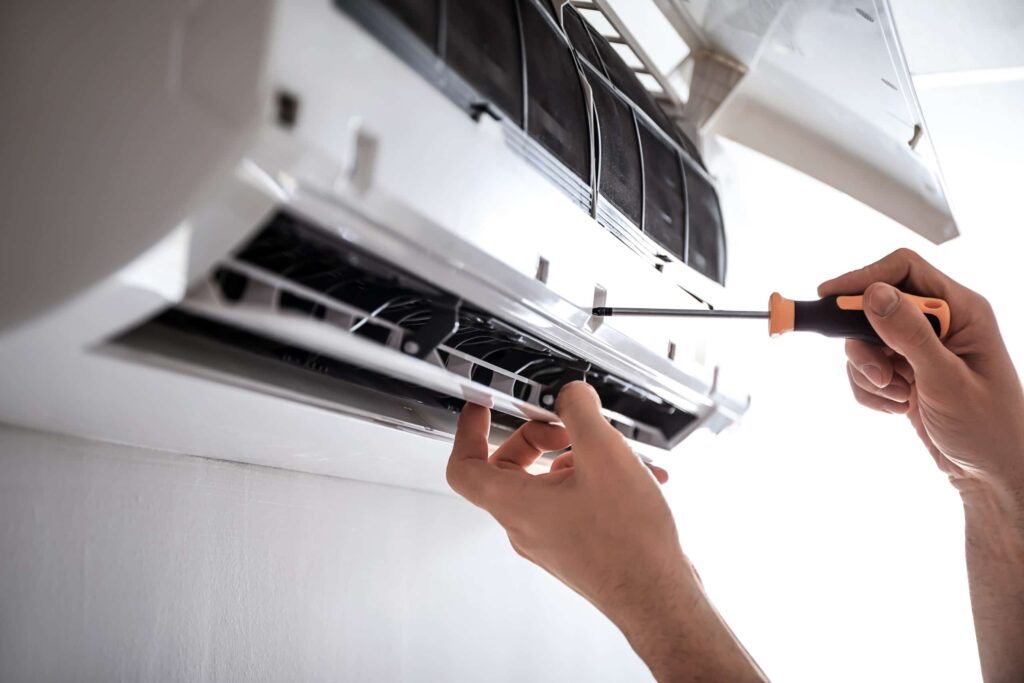Air conditioners have become an essential part of modern living, especially in regions with scorching summers. However, breaking ac when these systems break down, it can lead to discomfort, health risks, and unexpected expenses. In this comprehensive guide, we’ll delve into the common causes of AC breakdowns, preventive measures, and solutions to keep your cooling system running efficiently.
bluecollars.com
Common Causes of AC Breakdowns
Understanding why air conditioners fail is the first step in preventing future issues. Here are some prevalent reasons:
Lack of Regular Maintenance
Neglecting routine maintenance is a primary cause of breaking ac failures. Dust and debris can accumulate in filters and coils, reducing efficiency and leading to system overloads. Regular check-ups can identify potential problems before they escalate.
bluecollars.com
Refrigerant Leaks
Refrigerant is crucial for cooling. breaking ac Leaks not only diminish cooling efficiency but can also harm the environment. Signs include hissing sounds, ice buildup, and decreased cooling performance.
Electrical Issues
Faulty wiring, capacitor problems, or tripped breakers can disrupt the AC’s operation. These issues can be hazardous and should be addressed promptly by professionals.

Dirty or Clogged Filters
Filters trap dust and pollutants. breaking ac Over time, they can become clogged, restricting airflow and forcing the system to work harder, leading to potential breakdowns.
Thermostat Malfunctions
A malfunctioning thermostat can misread temperatures, causing the breaking ac to cycle incorrectly. This not only affects comfort but can strain the system.
Drainage Problems
The breaking ac removes moisture from the air, which drains away. If the drain becomes clogged, it can lead to water damage and increased humidity levels indoors.
Sensor Problems
AC units have sensors that monitor air temperature. If these sensors are knocked out of position or malfunction, the system can behave erratically.
Age of the Unit
Most breaking ac units have a lifespan of 10-15 years. As they age, components wear out, and efficiency decreases, making breakdowns more likely.
Improper Installation
An incorrectly installed AC can lead to various issues, from poor airflow to frequent breakdowns. Ensuring professional installation is crucial.
Overuse or Incorrect Usage
Constantly running the breaking ac at the lowest temperature or not giving it breaks can strain the system, leading to premature failures.
Preventive Measures to Avoid AC Breakdowns
Taking proactive steps can extend the life of your AC and ensure consistent performance.
Schedule Regular Maintenance
Annual or bi-annual check-ups by professionals can identify and rectify potential issues, ensuring the system runs efficiently.
Replace or Clean Filters Regularly
Depending on usage, filters should be cleaned or replaced every 1-3 months to maintain optimal airflow and air quality.
Keep the Outdoor Unit Clean
Ensure the external unit is free from debris, leaves, and dirt. A clean unit dissipates heat more effectively, improving efficiency.
Ensure Proper Thermostat Settings
Using programmable thermostats can optimize cooling schedules, breaking ac reducing unnecessary strain on the system.
Check and Clear the Condensate Drain Line
Regularly inspect the drain line for blockages to prevent water damage and maintain humidity control.
Avoid Overworking the System
Using ceiling fans, closing blinds during peak sun hours, and setting the thermostat to a reasonable temperature can reduce the load on the breaking ac.
Ensure Proper Insulation
Well-insulated homes retain cool air better, reducing the workload on the AC system.
Upgrade to Energy-Efficient Models
Modern breaking ac units are designed for better efficiency and durability. Upgrading can lead to long-term savings and fewer breakdowns.
Use Ceiling Fans to Assist Cooling
Fans can circulate cool air more effectively, allowing you to set the thermostat a few degrees higher without compromising comfort.
Educate Household Members
Ensure everyone understands the importance of proper AC usage, from setting appropriate temperatures to reporting irregularities promptly.
Immediate Steps When Your AC Breaks Down
If your AC stops working, here’s what you can do:
Check the Thermostat Settings
Ensure it’s set to “cool” and the temperature is set lower than the current room temperature.
Inspect the Circuit Breaker
A tripped breaker can cut power to the AC. Reset it if necessary, but if it trips again, consult a professional.
Examine the Air Filter
A clogged filter can restrict airflow. Replace or clean it if it’s dirty.
Look for Ice Formation
Ice on the coils indicates airflow issues or refrigerant problems. Turn off the unit and let it thaw before restarting.
Listen for Unusual Noises
Strange sounds can indicate mechanical issues. Note them and inform your technician.
Call a Professional Technician
If basic troubleshooting doesn’t resolve the issue, it’s time to call in the experts.
Long-Term Solutions and Upgrades
Considering long-term strategies can enhance comfort and reduce future issues.
Invest in a Programmable Thermostat
These devices can optimize cooling schedules, leading to energy savings and reduced wear on the system.
Upgrade to Energy-Efficient Units
Modern ACs consume less power and offer better cooling, making them cost-effective in the long run.
Consider Zoning Systems
Zoning allows you to cool specific areas of your home, improving efficiency and comfort.
Explore Alternative Cooling Methods
Ceiling fans, evaporative coolers, and improved ventilation can supplement or reduce reliance on AC systems.
Regularly Update Insulation
Improved insulation retains cool air, reducing the need for constant AC operation.
Environmental and Health Considerations
Beyond comfort, consider the broader impacts of AC usage.
Environmental Impact
Older AC units can release harmful refrigerants. Upgrading to eco-friendly models reduces your carbon footprint.
Indoor Air Quality
Regular maintenance ensures the system filters out pollutants, providing cleaner air indoors.
Noise Pollution
Modern units operate more quietly, reducing noise pollution in your living space.
Health Implications
Proper humidity control prevents mold growth, and clean filters reduce allergens, promoting better health.
Conclusion:
Air conditioners are vital for comfort, breaking ac especially during hot seasons. Understanding common issues, implementing preventive measures, and considering long-term solutions can ensure your system operates efficiently and lasts longer. Regular maintenance, timely upgrades, and mindful usage not only enhance comfort but also contribute to environmental conservation and health. Stay cool and proactive!

